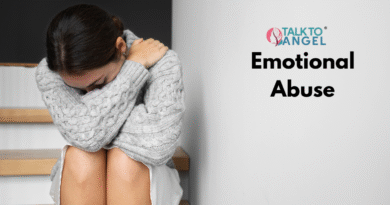Understanding Infidelity and Its Emotional Impact
Infidelity, often simply termed cheating, can shake the very foundation of a romantic relationship. It not only leads to intense emotional pain but also triggers a cascade of psychological consequences for both the betrayed and the betrayer. With rising awareness about emotional well-being, more individuals are choosing to seek therapy to understand the roots of betrayal and to navigate the painful aftermath.
This blog explores the concept of infidelity, its psychological dimensions, common causes, emotional fallout, and how professional counseling can be a life-changing step in healing.
What Is Infidelity – Brief Overview
Infidelity, or cheating, refers to a breach of trust in a committed relationship when one partner becomes emotionally or physically involved with someone outside the relationship. It’s not just about physical intimacy; emotional connections, secrecy, and betrayal can be just as damaging.
Common Types of Infidelity
- Physical Infidelity: Having sex outside of a relationship is known as physical infidelity.
- Emotional Infidelity: Developing a close emotional bond with someone else.
- Cyber Infidelity: Flirtatious or intimate online interactions.
- Financial Infidelity: Hiding financial decisions or spending.
- Micro-Cheating: Small actions that blur relationship boundaries, like secretive texting.
Infidelity deeply impacts emotional well-being and trust. Whether physical or emotional, it often leaves the betrayed partner feeling hurt, anxious, and confused. Recognizing the many forms it can take is a crucial step towards understanding its effects and addressing relationship issues with honesty and support.
Why Do People Cheat?
Cheating isn’t always about dissatisfaction with a partner. It’s often rooted in a mix of personal, psychological, and situational factors:
- Emotional neglect: Feeling unheard, unloved, or underappreciated
- Desire for excitement: Craving novelty or sexual adventure
- Low self-esteem: Seeking external validation
- Unresolved trauma: Acting out due to past abandonment or rejection
- Poor communication: Inability to express needs or dissatisfaction
Understanding these reasons can be the first step in healing, not just for the relationship, but for the individuals involved.
Psychological Effects of Infidelity
The consequences of trauma might be mirrored in the aftermath of adultery. The betrayed partner may experience:
- Shock and disbelief
- Anger, sadness, or depression
- Obsessive thoughts
- Loss of self-worth
- Trust issues in future relationships
For the partner who cheated, guilt, regret, and anxiety often follow, especially if they didn’t intend to hurt their partner or still wish to repair the relationship.
Infidelity in the Digital Age
Social media and messaging apps have blurred the boundaries of fidelity. Emotional affairs are more common, and access to anonymous interactions has made cheating more accessible than ever. While this doesn’t excuse betrayal, it reflects how modern-day pressures, virtual connections, and instant gratification contribute to infidelity.
Can a Relationship Survive Cheating?
The short answer is yes, but it depends. Some couples emerge stronger post-infidelity, having done the inner work and rebuilt their bond through honest conversations and counselling. However, recovery is not automatic or easy. It demands:
- Accountability from the unfaithful partner
- Willingness to forgive the betrayer
- Consistent communication
- Professional guidance
Trust can be rebuilt, but it takes time and grief.
The Role of Infidelity Counselling
Therapy offers a secure and impartial setting for examining the causes of the betrayal, locating emotional scars, and re-establishing trust. Whether couples choose to stay together or separate, counselling ensures the healing journey is intentional and guided.
Individual Counselling
- Helps process intense emotions
- Uncovers patterns of self-worth, abandonment, or unresolved trauma
- Builds self-compassion and clarity
Couples Counselling
- Facilitates honest communication
- Rebuilds emotional and physical intimacy
- Teaches conflict-resolution and boundary-setting
Support Options for Navigating Relationship Challenges
The Psychowellness Center, recognized as the best mental health wellness clinic in Delhi, offers couples and individuals coping with infidelity a controlled setting. Their expert team of psychologists and therapists specializes in relationship counselling, trauma recovery, and emotional healing. Services include Emotionally Focused Therapy (EFT), Cognitive Behavioural Therapy (CBT), and structured couple counselling sessions aimed at rebuilding trust and emotional safety. Whether you are trying to make sense of what happened or seeking clarity on your next steps, the center offers customized support tailored to your emotional needs.
For those seeking accessible and private therapeutic support, TalktoAngel offers online counselling sessions with licensed professionals. The platform is designed for convenience and confidentiality, especially for individuals uncomfortable with in-person visits. From managing betrayal trauma to understanding your emotional patterns, the platform connects users with therapists experienced in relationship distress, communication breakdowns, and healing after cheating.
How to Cope with the Pain of Infidelity
Here are some practical steps to begin healing:
- Don’t make impulsive decisions: Take time before choosing to stay or leave.
- Speak with an expert: Therapists can assist you in understanding your feelings.
- Avoid blame games: Focus on understanding and responsibility.
- Keep a journal of your feelings: Writing facilitates the processing of sorrow and clarity.
- Set boundaries: Decide what is acceptable and non-negotiable moving forward.
- Seek social support: Share with trusted friends or support groups.
Conclusion
Infidelity is one of the most difficult experiences a person can endure, but it does not have to define your future. With self-awareness, emotional support, and professional guidance, healing is not only possible, it’s powerful.
Whether you aim to repair your relationship or heal as an individual, therapy can help you find clarity, strength, and peace. Don’t hesitate to reach out to trusted mental health services like Psychowellness Center or TalktoAngel. Your emotional well-being is worth it.
References
- American Psychological Association. (2023). Understanding infidelity: The emotional and relational toll. Retrieved from https://www.apa.org
- Glass, S. P. (2003). Not “Just Friends”: Rebuilding Trust and Recovering Your Sanity After Infidelity. Free Press.
- Gottman, J., & Silver, N. (2015). The Seven Principles for Making Marriage Work. Harmony Books.
- Atkins, D. C., Baucom, D. H., & Jacobson, N. S. (2001). Understanding infidelity: Correlates in a national random sample. Journal of Family Psychology, 15(4), 735–749.




